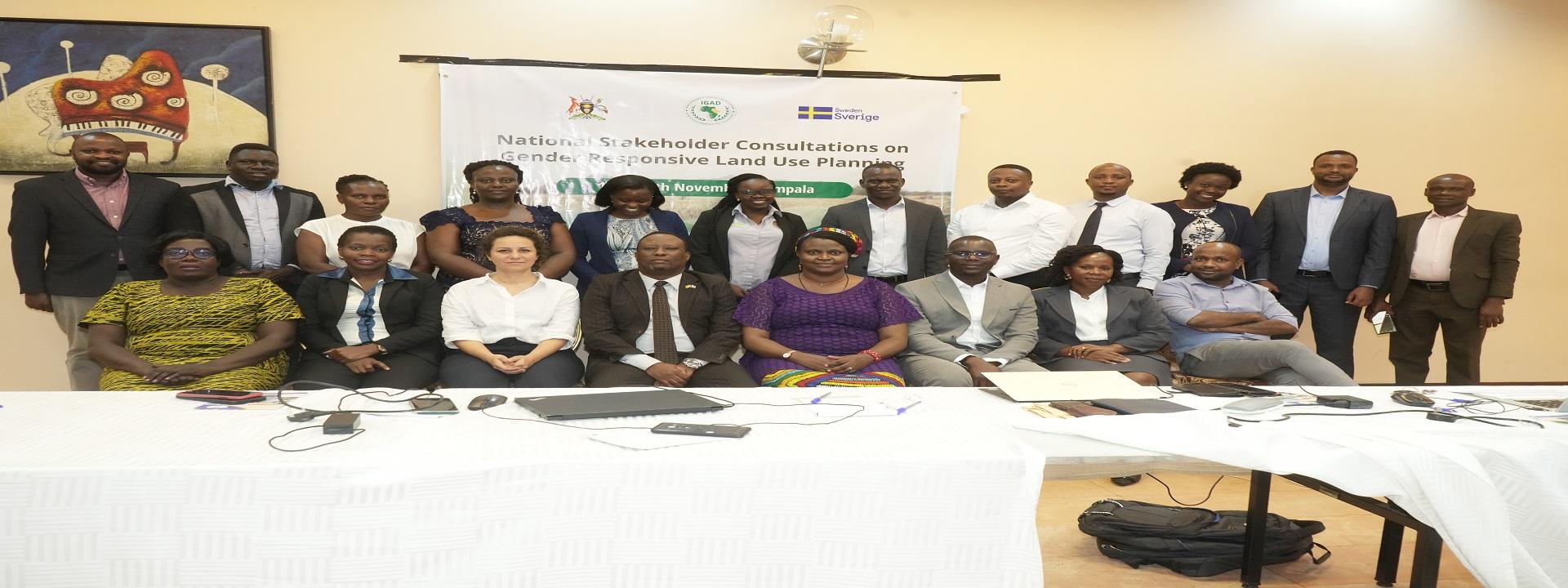November 11-12, 2024 (Kampala, Uganda): The rapidly growing population has expanded the land under cultivation, disrupting pastoralists’ traditional access to pasture and water and bringing them increasingly into conflict with farmers. In response, the Intergovernmental Authority on Development (IGAD) through its Land Governance Programme in collaboration with the Ministry of Lands, Housing and Urban Development with financial support from Sweden in Ethiopia and the African Union, conducted a two-day National and Local Government Land Use Planning Consultative Meetings in Kampala with various stakeholders to discuss strategies for integrated, participatory, and transnational rangeland planning and management, aimed at promoting sustainable development in the Karamoja cluster.
Speaking at the opening Mr. Emmanuel Kaganzi, Commissioner of Physical Planning said that Land is one of the most essential pillars of human existence and national development. In this regard, land ownership, land use planning, and land management are very critical and treated as vital for production and an essential part of the national economy. The government has prioritized physical planning as a key strategy in transforming the Country in line with the objectives of Vision 2040.
The Karamoja cluster cuts across the four countries of Kenya, Ethiopia, South Sudan, and Uganda. It is mainly an agro-pastoralist area where land use is communal and customarily held.
Ms. Joselyn Bigirwa, IGAD Head of Mission to Uganda noted that in line with IGAD’s mandate of promoting regional cooperation and promoting peace and stability in the Region, land use planning and management is key mechanism to minimizing conflicts at family, community in transboundary areas. The Land Governance Programme, learning from previous interventions in the Mandera cluster is replicating similar interventions in the Karamoja cluster. Central to this Programme is to build climate resilience through gender responsive and conflict sensitive land use planning.
The two-day consultation meeting was organized with the objectives to:
- Raise awareness on the crucial role of inclusive and participatory land use planning for all concerned national-level stakeholders
- Understand the context and practical experience at the Karamoja region of the cluster
- Discuss the functions of and the relationship between planning authorities at National and District Levels
- Understand the types, principles, procedures, and standards for the preparation and implementation of physical and land use development plans at the National level and local levels
The National Level Consultations in Kampala were successfully concluded and the government through its Ministry of Lands, Housing and Urban Development reaffirmed its commitment and support IGAD in the implementation of the project.

